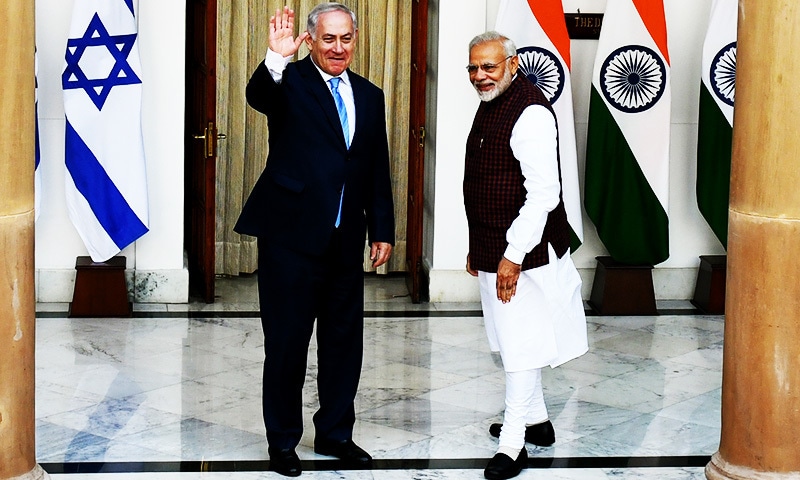Benjamin Netanyahu hailed a “new era” in ties with India on Monday as he signed a series of deals during the first visit by an Israeli prime minister to India in last 15 years.
Netanyahu made the comment after talks with Narendra Modi, who made history in July when he became the first Indian leader ever to visit Israel.
The Israeli premier is accompanied by the largest-ever business delegation to travel with an Israeli leader, including technology, agriculture and defence executives.
Netanyahu and his Indian counterpart embraced warmly, appearing to overcome any tensions over India's refusal to support US moves to recognise Jerusalem as Israel's capital, before signing agreements on cybersecurity and energy.
“We are ushering today a new era in our relations,” Netanyahu said after their talks. “We have had diplomatic relations for 25 years, but something different is happening now because of your leadership and our partnership,” he said.
Earlier, Netanyahu said he was “disappointed” by India's decision to vote for a resolution at the UN General Assembly opposing the US recognition of Jerusalem as Israel's capital.
Israel is already a major weapons supplier to India, exporting $1 billion of military equipment annually. Earlier this month India announced it would buy 131 surface-to-air missiles from Israel for its first domestically made aircraft carrier.
Dozens gathered near the Israel embassy to protest at Netanyahu's visit on Monday.
Modi also wants to end India's status as the world's top defence importer and encourage foreign companies to transfer their technology to local firms to create much-needed jobs. India has already cancelled a $500 million deal to buy Israeli Spike anti-tank missiles after apparently deciding to manufacture the equipment at home.
On Monday Modi said he had invited Israeli defence companies “to take advantage of the liberalised foreign direct investment (FDI) regime to make more in India with our companies”.
Netanyahu is the first Israeli leader to visit India since Ariel Sharon's trip in 2003. On Tuesday he will visit the Taj Mahal and travel to Modi's home state of Gujarat before heading to Mumbai where the majority of India's estimated 4,500 Jews live.
There, he will make an emotional visit to a Jewish centre targeted in the 2008 Mumbai attacks. Netanyahu is accompanied by 11-year-old Moshe Holtzberg, whose parents were among 166 people killed in coordinated attacks on the city.
While in Mumbai he will also host a party for Bollywood producers where he will trumpet Israel as a filming location. India said it was sending a delegation to Israel next month for talks on a free trade agreement.
The two countries have been negotiating the agreement since 2006 with a focus on information technology, biotechnology, and agriculture. Trade between India and Israel rose to $5bn in 2016-17 from $4.91bn in the previous fiscal year.















































